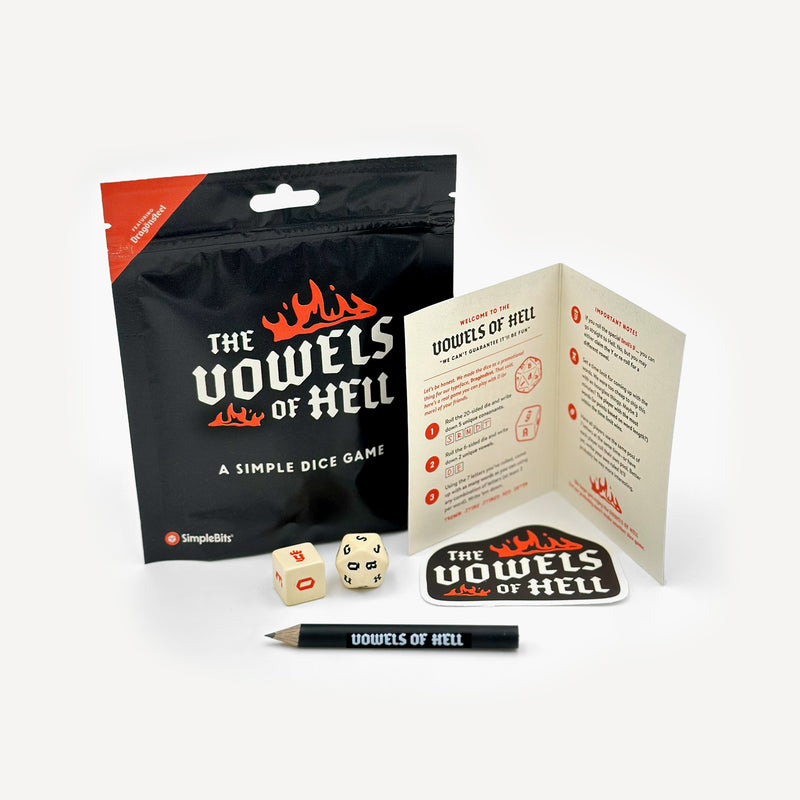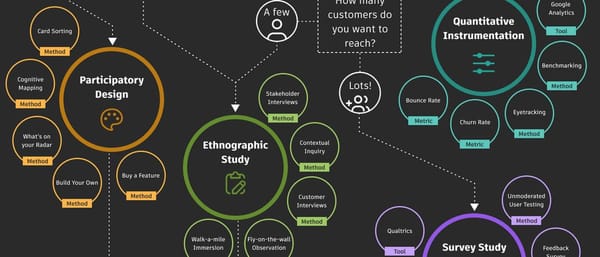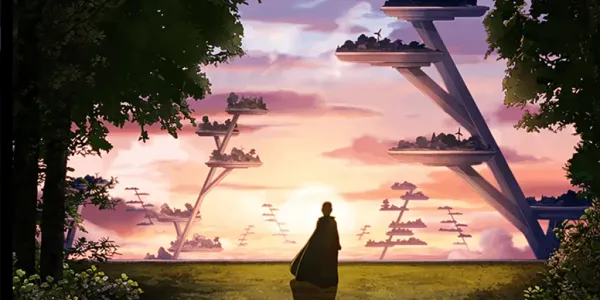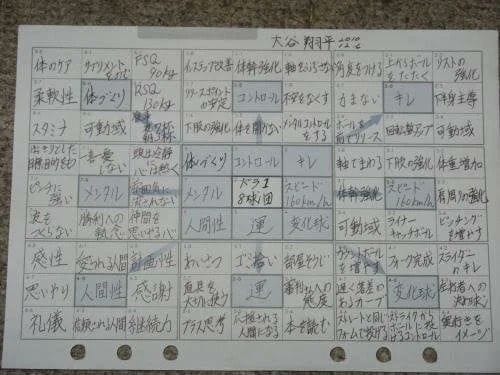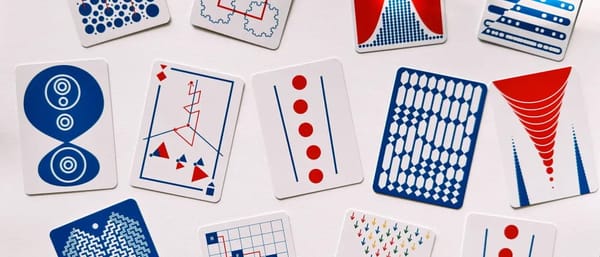№ 74 | Beyond the Hero’s Journey, Even/Over Statements, Frugal Education: Action Cards, Honest Government Ad for AI, and Terra Fabula
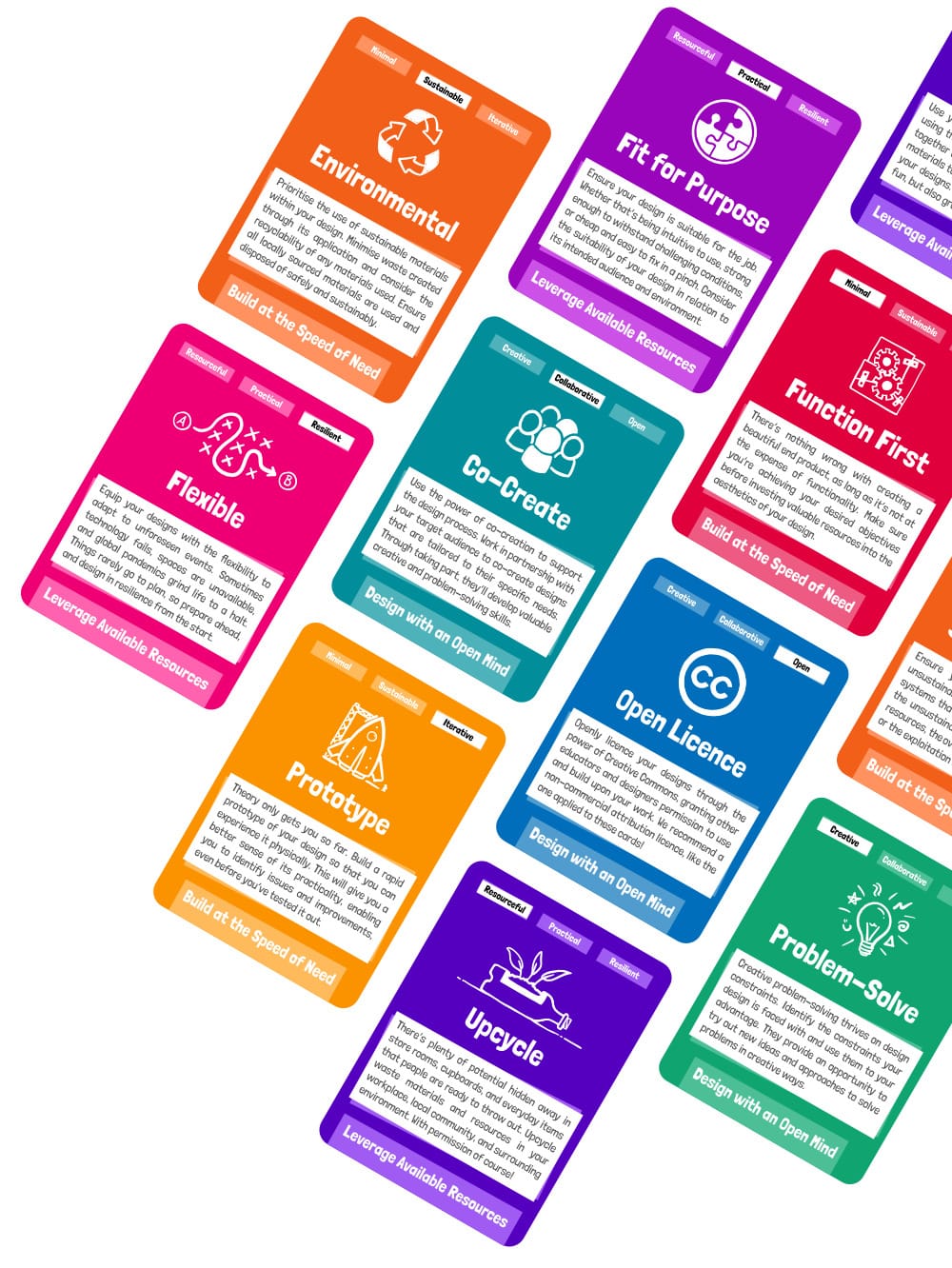
[Video] Beyond the Hero’s Journey
One of my many side interests is how stories work. To that end, this talk on character arcs has been playing over in my head for a few weeks now. It feels like a great way to think about narratives, in a way that’s far more accommodating than the rigid 3-act structure or the traditional hero’s journey.
Essentially, the moving parts of a character arc can be summed up like this: When there’s a Change between the character’s External world and Internal world, this gap creates Conflict and a Choice to be made. That’s it! Play this out, and this series of changes, conflicts, and choices creates a pattern—the shape of the story (and yes, resolving the story in an optimistic way, results in the hero’s journey).
But—and this where it gets really interesting—the story need not resolve in an optimistic way nor adhere to three acts. The slide below hints at these various patterns and range of tonal qualities.
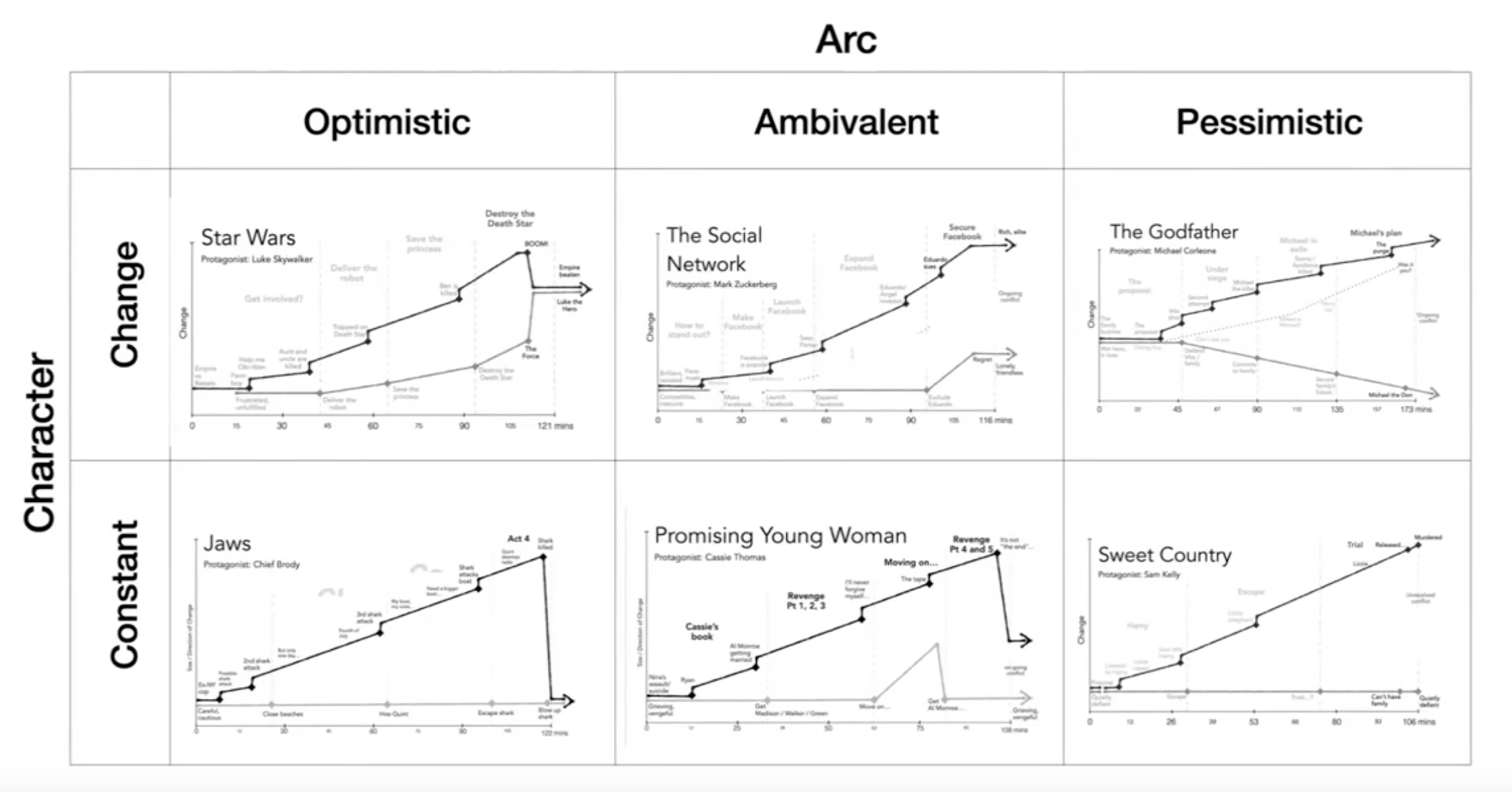
Thinking about character arcs in this way dramatically widens the range of stories that can be analyzed for their unique qualities, easily taking in everything from inspiring tales of transformation and triumph to tragedies of powerlessness and despair and everything in between.
Good stuff! Oh, and I love this jab at the hero’s journey:
It's kind of ironic that the hero's journey seems to be stuck in a fairly pedestrian corner of the storytelling landscape… It feels like the hero’s journey needs to go out and have a bit of a hero's journey of its own and kind of shake things up a little bit.
🤣
To be clear, most thoughtful tools, models, patterns—they’re all good and fine, until… people make them dogma and declare this is The One Right Way. Here’s a review of the book Beyond the Hero’s Journey, which echoes the same sentiment:
“I too have found that you can’t always make stories exactly fit Christopher Vogeler’s, Robert Mcksee’s, Joseph Campbell’s and others’ theories but let’s not forget just how much effort these people have put into studying the form. And they all readily admit that they’re offering a tool not a rod for our backs.”
Even/Over Statements
Prioritization is hard. Let’s just pause on that statement.
Here’s a new (to me) concept I learned about earlier this week: Even/Over Statements . The concept is simple: Write a phrase that contains two positive things (it’s critical that both are good, desired options!), where the former is prioritized over the latter.

That’s it! You could use this for team values, a backlog, features, favorite [anything]—whatever! In fact, I vaguely recall a movie ranking app that did something similar. It would ask me to choose—from two options—which movie I preferred. At first, it was easy, but as the ‘game’ went on, it’d start to pit some of your previous favorites against each other (e.g “Which is better? ‘The Incredibles’ or ‘Captain America: The Winter Soldier’”). Yikes!
File under: Simple concepts to think with.
Frugal Education: Action Cards
The Frugal Education Action Cards are pitched as “a fairly easy to use tool for rethinking education design in frugal and sustainable ways.” And while I really do like this curated list of considerations, I’m still not clear on how—exactly—one might use this card deck. I think I’m struggling to see anything that is education specific, as nearly every one of these concepts could apply to a classroom as easily as the office or a town hall. Digging into this interview with creator Alex Masters, he does state the goal was to “foster a frugal and innovative mindset”—that, I can see. And support.

***BONUS: In the interview, Masters mentions three other card decks he’s created: ‘What is Your Story?’, ‘L·E·A·R·N’, and ‘Remixing Play’ cards.
[Video] Honest Government Ad for… AI!
I present… satire as a playful thing to think with. Here’s an honest government ad about AI. So. Much. Truth. And humor. [Warning: Explicit language.]
Terra Fabula
Ooh… this looks, fiendish (in a good and educational way!):
Terra Fabula is a classroom game designed to give primary school students a powerful and immersive experience of the impact of first contact and colonisation, through the eyes of Indigenous communities. Students work through guided map making, drawing and writing activities to create a land which they then populate with a pre-industrial community. They imagine a culture for this community, and connect with other neighbouring communities. Without warning, the game changes tone as colonising explorers and settlers arrive, often with dramatic impact to the lives of the communities the students have built.
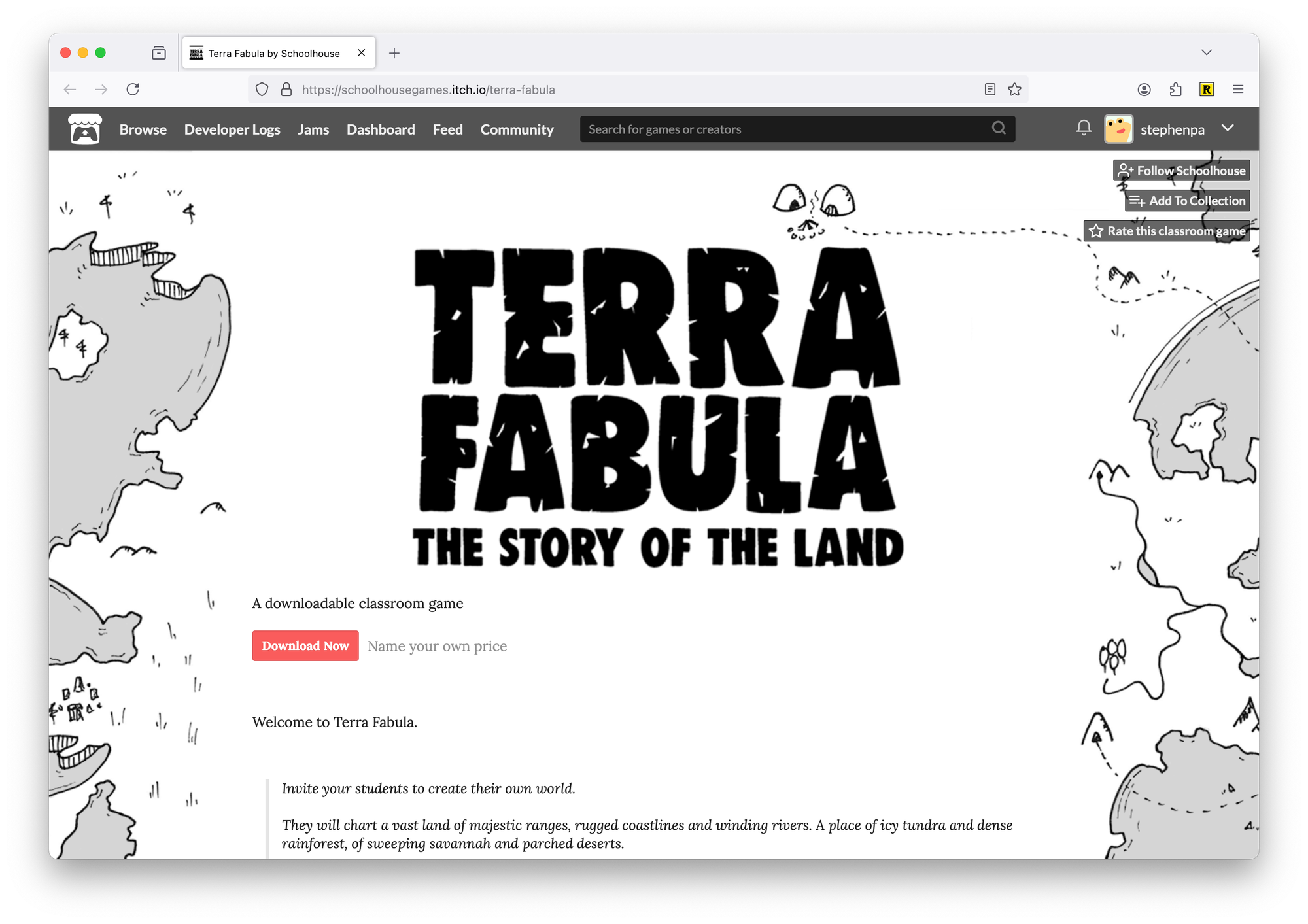
As someone who values personal expression and creation, seeing my work disrupted like this would certainly have made a lasting impression on me! Great way to personalize (contextualize?) colonization from the perspective of the colonized, without explicitly stating that’s the goal.
***BONUS: A game to promote a typeface?! I’m in! Introducing the The Vowels of Hell Game
